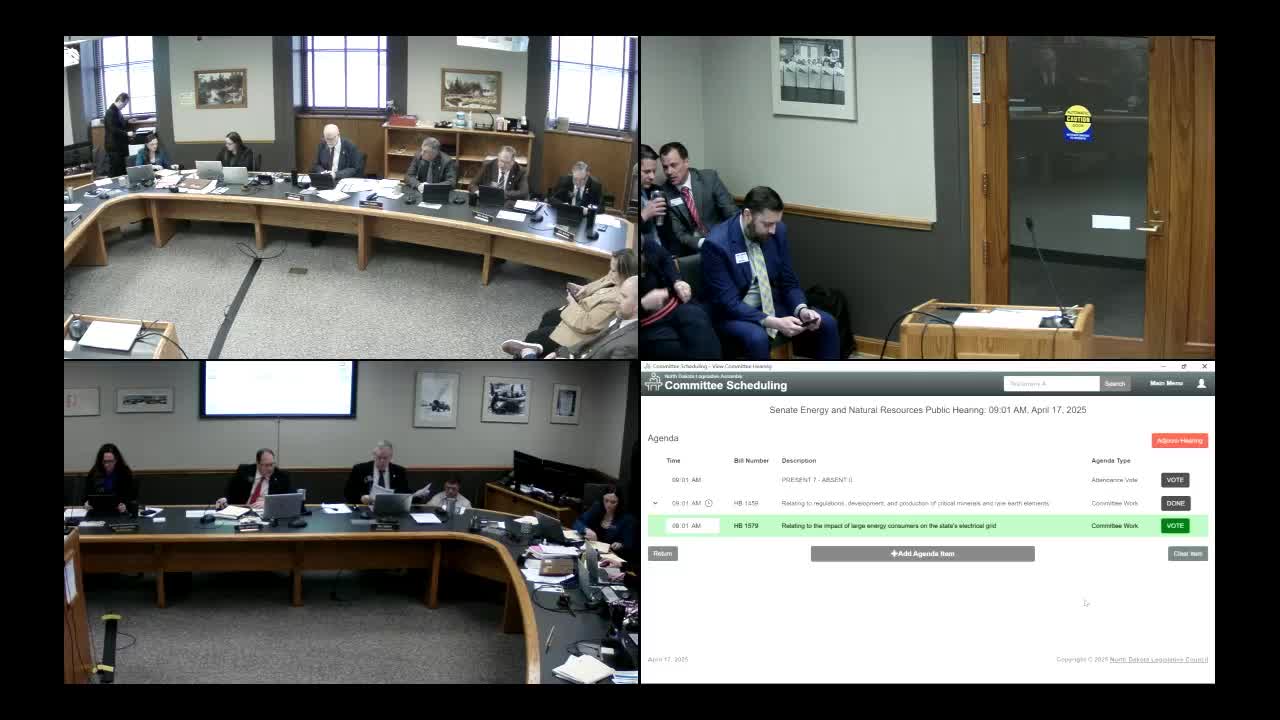Committee approves study bill on large electrical loads and data centers, 7-0
Get AI-powered insights, summaries, and transcripts
Subscribe
Summary
The Senate Energy and Natural Resources Committee gave a do-pass recommendation to House Bill 1579, a study of the impacts of very large electricity consumers such as data centers on the grid, infrastructure needs and regulatory issues; the committee recorded a 7-0 vote and named a carrier.
The Senate Energy and Natural Resources Committee voted unanimously, 7-0, to give House Bill 1579 a do-pass recommendation after a discussion about grid reliability, transmission costs and landowner concerns tied to large electrical loads such as data centers.
House Bill 1579, which passed the House 89-3, directs a study of how extremely large electricity consumers affect the state's electrical grid and regulatory framework. Committee language requires the study to evaluate grid reliability, infrastructure and capacity needs, necessary upgrades, and regulatory consistency; the Public Service Commission will be involved in study discussions and stakeholder outreach.
Chair Patton framed the issue around cost allocation: "the cost causer is the cost payer," he said, describing an interest in ensuring upgrades required to serve large loads are paid by the entities that require them rather than by base ratepayers. Committee members discussed natural gas-fired on-site generation, behind-the-meter options, the need for near-absolute reliability for data centers, and economic opportunities tied to natural gas, drone technology and ag tech.
Several senators said that public outreach and clearer explanations to landowners will be important because transmission lines and other grid upgrades can create local impact. One senator asked about undergrounding lines; committee members and staff said undergrounding is technically possible but much more expensive than overhead lines and cited the smaller footprint of modern pole structures. The commission and industry representatives will be asked to provide detail in the study on costs, siting trade-offs and possible mitigation measures.
The committee moved for a do-pass on House Bill 1579 and recorded a 7-0 vote. Senator Kessel was named as the carrier to present the bill forward. Committee members said the study should include explicit attention to rate impacts and public engagement so citizens understand reliability and redundancy issues tied to large-load projects.
